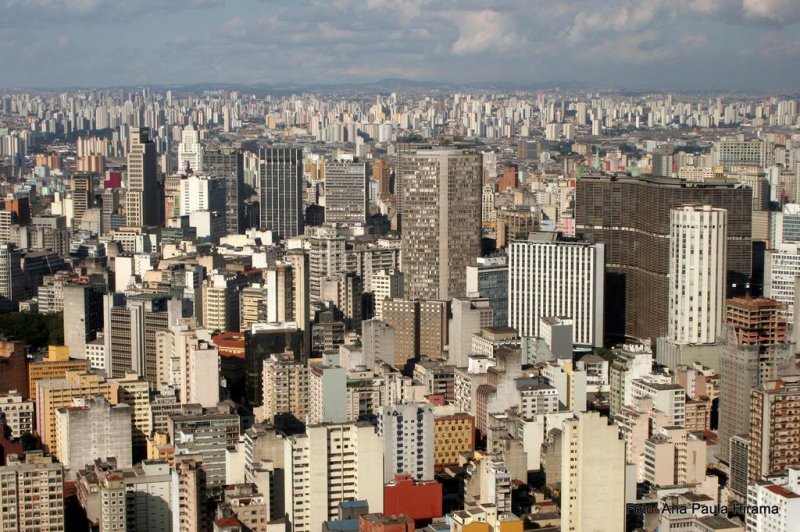Sao Paulo, Brazil is experiencing a severe drought. (UPI/Flickr/Ana Paula Hirama)
SAO PAULO, Nov. 18 (UPI) -- Considered Brazil's worst drought in more than 80 years, the 96,000 square mile state of Sao Paulo is experiencing regular water shutoffs.
Some of the 40 million residents are experiencing shortages at night while others reported day time cutoffs. Five of the state's main reservoirs are critically below normal operating level.
The state government and state-run water company, however, deny they are rationing residents' water -- despite dramatic shortages.
"It is not just the lack of water, which is critical, it is also not knowing how to manage the crisis," Carlos de Oliveira, of the Brazilian Consumer Defense Institute in Sao Paulo, told the Washington Post.
"Instead of supplying information, [Sao Paulo water company] SABESP blames the consumer," de Oliveira added.
SABESP has offered customers incentives to reduce water consumption, including a discount to those who comply, and launched a water reduction campaign.
"I couldn't imagine another international major city allowing itself to get to such a precarious point without having introduced water use restrictions," Richard Palmer, head of the Department of Civil and Environmental Engineering at the University of Massachusetts, told the Post. During Palmer's visit to Brazil in May, he "was very surprised at the confidence that SABESP showed in being able to manage the crisis without involving more people."
With the Cantareira reservoir, which served half of Sao Paulo's water, dried up, SABESP has been criticized for not doing enough in a timely manner.
The company plans to begin pumping a second quota of "dead water" this week from sediment-filled pools in the four-lake complex.















